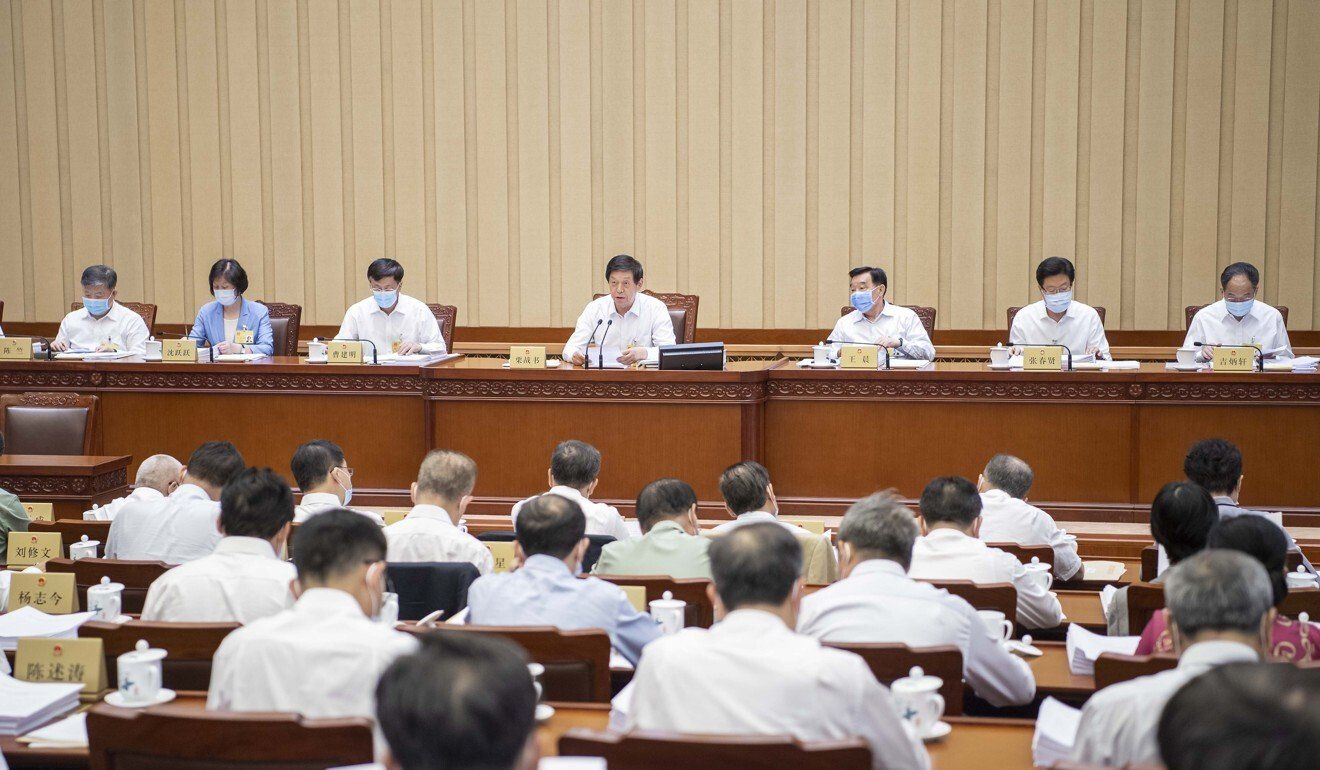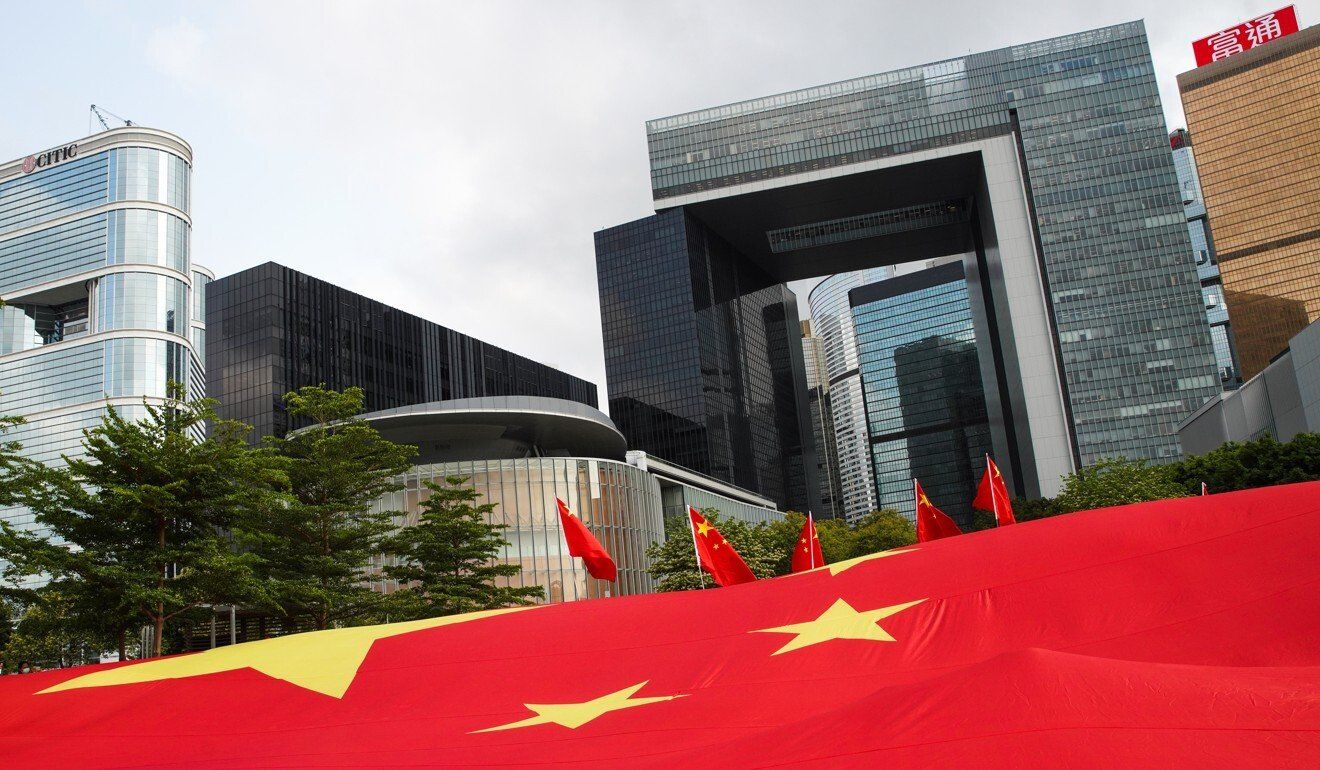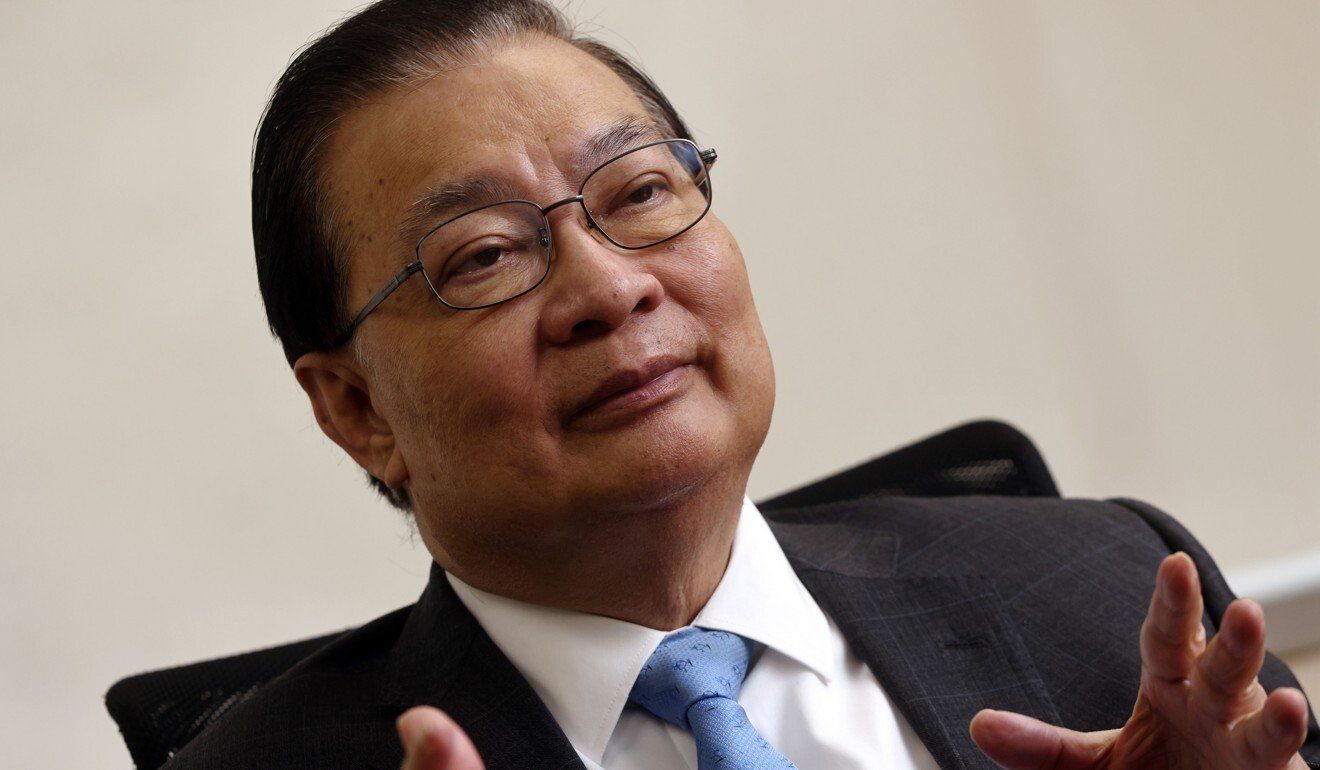
China unveils new legal weapon to hit Western rivals with tougher sanctions
China’s top legislative body is set to pass a new anti-sanction law on Thursday, giving substantive legal backing and protection to the country’s retaliatory measures against punitive actions by Western governments on Chinese officials and companies.
State media announced on Monday night the latest move by the National People’s Congress Standing Committee to counter the United States and its allies who have been piling pressure on Beijing over such issues as Hong Kong’s freedoms and the treatment of the Uygur minority in Xinjiang.
State broadcaster CCTV reported that the new law was aimed at offering a legal basis for the central government to take retaliatory measures against foreign sanctions, but stopped short of fleshing out details of the legislation.
The bid to pass such a law comes after China imposed new rules at the start of the year against what it called “unjustified” foreign action against its citizens and businesses. The rules were meant to defend national interests in the face of a rash of sanctions from Washington on Chinese tech firms and officials, Beijing said then.
 The National People's Congress Standing Committee is holding a four-day meeting in Beijing.
The National People's Congress Standing Committee is holding a four-day meeting in Beijing.
The measures revealed in January, called “counteracting unjustified extraterritorial application of foreign legislation”, were seen then as a robust response to Washington’s reliance on its so-called long-arm jurisdiction that allows it to prosecute entities with links to its own authority.
But analysts said the rules lacked details and they did not expect test cases to surface immediately.
Monday’s announcement of the new law appeared to build upon and give legal teeth to the “blocking rules” revealed in January which allow aggrieved parties to report damages to the commerce ministry and sue for compensation in Chinese courts.
A slew of Chinese companies have been targeted by the US, including most notably telecommunications giant Huawei, which has been subject to restrictions aimed at cutting it off from key components made with American technology.
The draft anti-sanction law was proposed at the opening meeting of the NPC Standing Committee, which is expected to pass it at the conclusion of the session on Thursday.
Shi Yinhong, a researcher on US-China relations, said Beijing needed such legislation to strengthen its ability to counter foreign sanctions at a time when its rivalry with Washington and its allies did not appear to be abating and was likely going to continue.
“Upon the legislation, the likelihood for counter-sanctions would increase,” Shi said, adding that it might still take time to finalise the new law to make it more targeted, precise and aligned with international norms.
China watcher Song Sio-chong, a professor at Shenzhen University’s Centre for Basic Laws of Hong Kong and Macau, said he believed the new legislation would allow Beijing to take retaliatory measures against its Western rivals, even when the legality of such action might be in doubt.
“Now the international situation is getting more and more critical, and the US often deviates from international law in dealing with China,” Song said. “I believe that the new law will allow Beijing to hit back, regardless of whether its rivals are following international law or not.”
Lau Siu-kai, vice-chairman of semi-official think tank the Chinese Association for Hong Kong and Macau Studies, said Beijing was trying to catch up with its Western rivals on laws related to the imposition of international sanctions.
 Hong Kong issues have also been in the spotlight.
Hong Kong issues have also been in the spotlight.
“The US has all kinds of laws, such as the Magnitsky Act, to impose sanctions and seize or freeze individuals’ properties, so now China wants to upgrade its toolbox too,” he said.
In announcing the move on Monday, CCTV also noted that to protect national sovereignty, dignity and core interests, as well as to oppose Western governments’ “hegemonism and power politics”, Beijing had rolled out a series of countermeasures to retaliate against their sanctions.
“Out of political manipulation and ideological prejudice, some Western countries have made use of issues relating to Xinjiang and Hong Kong as pretexts to slander and suppress China … [They] imposed so-called sanctions to brutally meddle with China’s internal affairs,” the report said.
CCTV revealed that since the annual sessions of China’s legislature and top political advisory body in March, lawmakers and advisers had raised the idea of enacting an anti-sanction law.
“Some NPC deputies and Chinese People’s Political Consultative Conference delegates, and people from various sectors raised the suggestion that there was a need for the country to enact a law to oppose foreign sanctions, and to provide strong legal support and guarantees for China’s countermeasures against foreign discriminatory moves,” the report said.
 Western governments have piled pressure on Beijing over the treatment of the Uygur minority in Xinjiang.
Western governments have piled pressure on Beijing over the treatment of the Uygur minority in Xinjiang.
Since the passage of the national security law last year, Hong Kong has become a target of foreign sanctions. Washington sanctioned Hong Kong leader Carrie Lam Cheng Yuet-ngor, and several other senior ministers along with the police chief, accusing them of undermining the city’s autonomy through the sweeping legislation.
Also affected were director of the State Council’s Hong Kong and Macau Affairs Office Xia Baolong, his deputy Zhang Xiaoming, central government liaison office director Luo Huining, and the director of Beijing’s National Security Office in Hong Kong, Zheng Yanxiong.
Those sanctioned have had their US-linked assets frozen and been effectively shut out of the global financial system as a result.
In recent months, the European Union, the US, Canada and Britain also sanctioned Chinese officials and entities over what they called Beijing’s policies of “oppression” against Uygurs in Xinjiang. China’s foreign ministry responded by imposing its own travel and asset sanctions on those foreign individuals – including some lawmakers of European countries and scholars who had “severely harmed China’s sovereignty and interests and maliciously spread lies and disinformation”.
Tam Yiu-chung, Hong Kong’s sole deputy to the NPC Standing Committee, said the draft proposal for the new law was added to the agenda at the start of its session on Monday morning.
“We were told to keep it confidential until the law is expected to pass on Thursday afternoon,” he said. “It was discussed in the last NPC Standing Committee meeting in April. But this time, they are ready to pass it, so it is being reported by state media. I support the law. It is needed.”
 Tam Yiu-chung, Hong Kong’s deputy to the NPC Standing Committee, was
among those sanctioned by the US over the city’s electoral overhaul
initiated by Beijing.
Tam Yiu-chung, Hong Kong’s deputy to the NPC Standing Committee, was
among those sanctioned by the US over the city’s electoral overhaul
initiated by Beijing.
Tam and standing committee vice-chairman Wang Chen were also among those sanctioned by the US over Hong Kong’s electoral overhaul initiated by Beijing to ensure only “patriots” would run the city. But the reform would see directly elected seats in the legislature cut and additional power given to a Beijing loyalist-dominated Election Committee to vet candidates for legislative and chief executive elections.
Wang Jiangyu, a professor at the City University of Hong Kong law school and director of the Centre for Chinese and Comparative Law, called the new legislation “an upgraded version” of the blocking regulations issued by the commerce ministry earlier, and said it could become a “powerful legal weapon” for Beijing by “spelling out the dos and don’ts”.
“Now it is elevated as a national law, standing at a much higher hierarchy than a ministry’s regulation,” Wang said. “As for whether it can be implemented, it still depends on the political will and the companies’ economic benefits from different markets. So as long as there is political will to implement it, it will definitely be effective. I think China’s market size is catching up with the US consumer market.”
Wang said it was better for a country to arm itself with such regulations as they were a “weapon to fight back”.
“If you don’t do anything, you just sit there to be bullied. But if you have something to counter that with, the other country will think twice,” he said.
Jiang Liu, a partner at law firm Morrison & Foerster’s New York office, said the effectiveness of China’s blocking statute would ultimately depend on the strength of its economy.
“From the experience of the EU’s blocking statute, which is meant to protect EU companies from the extraterritorial application of third-country laws, the affected companies may decide to make ‘business decisions’ to stop doing business with US-sanctioned entities in order to navigate under two legal regimes. In the case of China, it remains to be seen,” Liu said.
“But one unavoidable consequence of such competing blocking statutes is a potential substantial increase in the business and compliance cost, especially for multinational companies having business operations in both regions.”










